A canonical problem in computer science is to find the shortest route to every point in a network. A new approach beats the classic algorithm taught in textbooks.
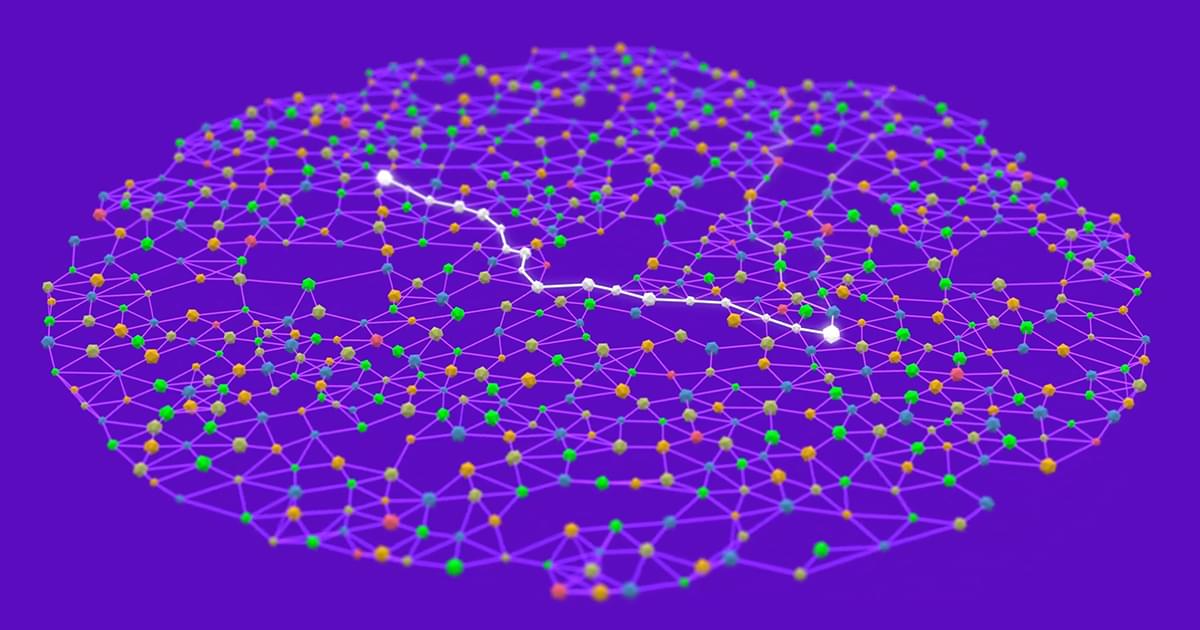


Toward a Unified Framework for Human Intelligence and Identity.
In the world of the Arts, the process of inquiry is grounded in embodied cognition and affective resonance, where experiential engagement becomes the pathway for exploring and understanding identity. Our experimentation is lived. And the central question we seek to answer, often without explicitly naming it, is the same question that drives much of philosophical and scientific pursuit: Who am I?
The language I use may not always follow traditional scientific terminology.
Instead, it emerges from the poetic, intuitive, and experiential domain of the right hemisphere of the brain. I invite you—respectfully and intentionally—to activate that hemisphere as we proceed. Observe not only with analysis but with resonance.
The Supraconscious Perception is the result of 19 years of continuous research and application in the realm of human identity, behavior, and performance. Over the years, this work has naturally led my team and me into adjacent disciplines: neuroscience, psychology, and eventually, perhaps most surprisingly, into the field of quantum physics.
While quantum physics may not yet offer all the empirical answers, what it does offer—conceptually and philosophically—is a model of reality that mirrors the lived experience of the actor: uncertainty, entanglement, potentiality, observation, and transformation.
It is in this framework that we place the phenomenon known to performers as the quantum leap—the moment an actor shifts from the known self into the field of the character, or what we here refer to as the Avatar. This leap is not symbolic. It is energetic. It is cognitive. It is physiological. And it is, I believe, supraconscious. Supraconsciousness refers to our deep immersion into consciousness—beyond ordinary awareness—where perception expands, identity becomes fluid, and intelligence operates across intuitive, emotional, and quantum dimensions.
For the first time, the discipline of acting is being redefined—
Not as a technique for illusion, but as a vehicle for conscious evolution.
This is not simply a reimagination of theatrical method.
It is a bold integration of science, consciousness, and identity—
Positioning the actor not as someone who imitates or pretends, but as someone who reveals.
Let us draw a parallel with artificial intelligence.
The core of AI—its intelligence—is built from code, algorithms, and numbers.
These are not merely mechanistic tools of logic.
They are, in essence, the mathematical poetry of existence—
Patterns, sequences, and structures that mirror the intelligent architecture of human perception.
And so, in exploring AI, we are not stepping away from humanity—
We are encountering, perhaps for the first time, a mirror of our deeper design.
Binary code. Neural networks. Machine learning pathways.
All emerge from a field of infinite numerical potential—
a field that is not separate from us… It is us.
We are not simply using algorithms.
We are awakening to the truth that we, too, are made of intelligent, evolving codes.
Every emotion has a frequency.
Every thought carries a pattern.
Every identity we assume—whether on stage or in life—is an encoded structure of:
Belief, Behavior, Biology
These codes are not static.
They shift. They respond. They evolve.
They are not bound by space or time.
They form what we now call Fourth-Dimensional Intelligence—
The bridge between linear, three-dimensional existence and the
fifth-dimensional being, or the supraconscious being, as I call it
In 3D, identity is linear.
Past → Present → Future.
One role. One mask. One life.
The algorithms we teach our machines mirror something far more advanced:
Simultaneous processing
Parallel data fields
Predictive modeling
Adaptive transformation through observation
This isn’t just artificial intelligence.
This is 4D living. A cosmic library of all possible realities.
This is the realm of the Avatar—
Not the cartoon, not the AI assistant—
But the soul-coded self that exists across dimensions.
A living fractal of you that already holds the data of your deepest potential.
In AI, we generate avatars to represent an identity.
In consciousness, the Avatar is identity—multifaceted, quantum, and meaningful.
What we are designing in code…
is what we already are in consciousness.
These AI developments are not our competition.
They are our reminders.
They are expressions of a dormant intelligence within us.
They point to the Fourth-Dimensional Intelligence:
The ability to access, interpret, and evolve multiple facets of the self simultaneously—Not through fiction, but through presence.
Just as we “train” AI models by feeding them data—
We train ourselves by feeding our minds presence, coherence, and creativity.
The more we align with those frequencies,
the more we awaken our inner algorithm of evolution.
This is the realm of the Avatar:
The quantum self—encoded, adaptive, aware—
That already exists across timelines, across dimensions, and within every conscious act we take.
A reflection of our multidimensional design,
our potential for evolution,
and our power to direct our lives—not as passive participants,
But as conscious actors in the ever-unfolding performance of existence.
Our traditional view of intelligence has been narrowly defined by human logic, memory, and performance on standardized metrics.
But this is only a fragment of the whole picture.
Intelligence is not merely cognitive—it is adaptive, embodied, and multidimensional.
It lives not only in thought, but in emotion, intuition, creativity, vision, and the ability to evolve across contexts and realities.
Instead, we propose that: Intelligence is relational: it emerges through interaction between the mind and body, the self and the other, language and sensation, and matter and energy.
Intelligence is experiential; it cannot be fully measured—it must be experienced. It is the embodied knowing that arises from synchronizing with life through presence, empathy, and emotional fluency.
Intelligence is multidimensional: It expresses itself through layers—conscious and unconscious, physical, energetic, human and beyond-human. It exists in animals, systems, dreams, movement, breath, and silence.
In our research, we refer to this as Supraconscious Intelligence—the intelligence that emerges when a person becomes aware of and enters into dialogue with a higher or parallel version of themselves, also known as the Avatar. This is not intelligence about something. It is intelligence with something.
It is the intelligence of communion: with potential, with soul, with infinite identity.
This new framing allows us to:
Recognize intelligence as an unfolding process of self-becoming.
Detach intelligence from rigid form and acknowledge it in states of being, transformation, and resonance.
Finally, accept that humans are not the sole bearers of intelligence—we are participants in a much larger intelligent system.
To truly understand the architecture of human intelligence, we must explore the interface between awareness and identity—the dynamic relationship between the observer and the observed, or the one who acts, the actor.
This brings us to the Observer–Avatar Model.
If intelligence is not a fixed trait but a relational field, then who are we relating to when we evolve, act, or transform?
In my work, I propose the concept of the Avatar—
a living, vibrational identity within us, seeded from the soul, encoded with infinite versions of who we could become.
The Avatar is not imaginary. It is an energetic intelligence structure—an archetypal self that exists in a quantum state of potential.
When we engage with our Avatar, we are entering into a sacred duality:
The Self as Observer and The Avatar as Observed—yet both exist within the same consciousness.
This relationship becomes the interface for activated intelligence:
The Observer brings awareness, intentionality, and reflection.
The Avatar brings instinct, wisdom, and encoded knowledge.
Together, they generate a dialogue of becoming.
This dynamic mirrors principles in quantum physics:
Entanglement: Observer and Avatar are non-locally connected. What affects one affects the other.
Superposition: The Avatar holds multiple identities until one is chosen and embodied.
The Observer Effect: The act of observing the Avatar causes the self to align with a new reality.
Thus acting becomes the laboratory where this relationship is trained, tested, and lived: Each role taken on stage consciously and in life unconsciously is a temporary union with an Avatar.
Through presence and embodiment, the one who acts experiences a new intelligence—a new memory field, emotional landscape, and identity code.
What was once fiction becomes a lived truth.
The Avatar is a frequency-based expression of a more evolved and integrated version of the self.
Each human holds within them multiple avatars—potential selves shaped not by past limitations, but by future possibilities.
These avatars are not imaginary; they are encoded blueprints of who we can become. When we align with a specific avatar, we activate a distinct mode of intelligence—one uniquely calibrated to that version’s perception, insight, and purpose.
This is how intelligence transcends anthropocentric limitation:
It is no longer confined to what the human knows, but expands into who the human can become. It honors inner multiplicity, emotional resonance, energetic coherence, and spiritual alignment.
The concept of the Fifth Wall represents a moment when the actor collapses not just the boundary between stage and audience, but between physical reality and a deeper, vibrational field of intelligence.
This phenomenon aligns with the most compelling frontiers in science:
🔹 First, Quantum Entanglement
In quantum theory, particles remain connected regardless of distance—what affects one instantly affects the other. Likewise, when an actor synchronizes with an Avatar, a non-local connection is established between the role and the self. What happens within the character’s emotional field directly influences the actor’s physiology, thoughts, and perceptions.
🔹 Second, non-local Consciousness
The actor on stage often reports experiences that transcend time and space: knowing things “they shouldn’t know,” feeling emotions from another spectrum, and seeing visions. These experiences give us access to a non-local field of information.
The Fifth Wall serves as the gateway into this field, providing direct access to supraconscious intelligence.
🔹Thirdly, the Observer Effect
In physics, the act of observation itself alters what is being observed.
In the Avatar-Observer dynamic, the more consciously the actor witnesses the Avatar, the more it reshapes him/her. The actor does not “become” the role through effort; they become it through attunement and observation.
🔹Lastly, Embodiment as Epistemology
Where science seeks to measure, acting allows us to experience.
Through breath, emotion, movement, presence, light, actors experientially confirm many of the metaphysical principles science has yet to validate formally.
The stage becomes a laboratory. The role becomes a ritual. The actor becomes a conscious channel.
The Observer-Avatar model introduces a paradigm shift in how we understand identity and intelligence.
Each human holds within them an Avatar—a soul-coded identity field that:
Operates as a quantum intelligence archive: a living memory of who we could be
Functions as both mirror and guide: reflecting who we are now and pointing toward who we are becoming
Activates physiological and energetic coherence: when we are aligned with our Avatar, the heart, brain, and body enter harmony, measurable by HRV (Heart Rate Variability) and EEG (electrical activity in the brain).
This model redefines identity not as a fixed psychological trait, but as a stratified, multidimensional performance—a bridge between self and source, will and waveform, memory and possibility.
Acting—particularly Method acting—is not merely the art of imitation. It is a disciplined practice of presence, surrender, and observation.
The actor steps into the unknown, guided only by breath, memory, and the present moment. In this process, intelligence is no longer a mental abstraction; it becomes a tangible reality. It becomes a felt experience—a dynamic conversation between body, emotion, intuition, and thought.
Through established techniques like:
Subconscious memory recall (emotional and sensory memory)
Internal monologue & active analysis
Character map integration
Imagined circumstances & as-if scenarios… the actor accesses:
Hidden emotional truths
Cognitive and linguistic plasticity
Spontaneous insight and intuitive coherence
This is living intelligence.
An actor becomes intelligent not because they know more, but because they become more—on demand, in alignment, without resistance.
In our conditioned world, most identities are built in survival mode: rooted in fear, repetition, and social programming, designed for safety rather than expansion.
Designed to adapt, not to transform.
The Avatar-Observer model offers an alternative:
Identity is no longer reactive—it is responsive
We are no longer just our history—we are our becoming.
And intelligence is not a tool for survival—it is a gateway to supraconscious living where everything shifts and control gives way to flow.
Where there was fragmentation, there’s now coherence.
And instead of running on old programming, we return to presence, fully to the here and now.
The actor becomes a metaphor for the conscious human:
One who can shift their frequency, and inhabit realities beyond what was previously possible.
Let’s make this personal.
As you reflect on what you’ve heard and felt, take a moment to ask yourself:
When did you last experience yourself as both the one who acts and the observer? The doer and the witness?
You don’t need to be an actor to become conscious of your actions and performance. You need presence and permission from yourself.
The Supraconscious theory is the result of 19 years of research, experiential exploration, and applied practice. Its foundational framework is outlined in Supraconscious: The Genius Within, which presents the core concepts and offers deeper insight into the philosophy and empirical roots of the theory. As we move forward, the next critical step is for science to take the lead in investigating and validating the mechanisms behind supraconscious development and identity transformation.
Several key areas present themselves as priority domains for scientific exploration, where performance becomes a measurable gateway into human evolution.
First, Neuroscience already reveals that during deep role immersion, brainwave patterns shift—electrical activity in the brain and fMRI scans capture fundamental changes —and we observe a powerful coherence between the heart, brain, and body when someone is fully present in a role.
From a psychological lens, role-play taps into early identity formation, revealing how our false selves are shaped—and how a more authentic, emergent self can break through.
Language also plays a key role. The words we use don’t just describe us—they shape us. Our narratives and intentions have measurable effects on how we perceive reality.
And underlying it all, we come to light, not just as energy, but as information. Our cells communicate through light, and perhaps, our consciousness does too. This is where acting, science, and supraconscious intelligence all begin to converge.
This is not just art. It’s a replicable method for studying the human condition at the level of energy, embodiment, and evolutionary intelligence.
Within this model, we propose an evolved definition of intelligence—one rooted in direct experience, awareness, and adaptability:
Multidimensional — Fluid across timelines, emotions, and contexts
Embodied — Felt and enacted through presence, not abstract logic
Observer-Based — Activated by self-witnessing, not external validation
Nonlinear — Expressed in intuitive leaps, downloads, and moment-to-moment insight
Co-Created — Emerging through interaction with the Avatar, story, and reality itself
Acting is no longer just performance.
It is a method of awakening multidimensional intelligence in real time.
Based on this model, we’re no longer defining intelligence as something fixed or purely mental. Intelligence is multidimensional—it shifts depending on the roles we play, the identities we embody, the emotions we experience, and the context in which we find ourselves.
It’s embodied, meaning we don’t just think it—we live it through presence.
It’s awakened through self-observation.
It’s nonlinear, showing up in sudden insights, intuitive downloads, and real-time performance.
And most importantly, it’s co-created—it comes alive through our connection with our Avatar, our story, and how we choose to meet reality.
We are standing at the threshold of a new paradigm—
Not only in performance or neuroscience, but in the very definition of intelligence itself. What we’ve explored is the emergence of a model where identity, perception, and consciousness interact as one coherent, evolving system.
The unique pattern of intelligence that lives beyond the mind,
resides within our physiology, and speaks through our presence.
Intelligence is not just something to measure—It is something to trust.
It is the quiet intuition beneath noise.
It is the embodied knowing that arises when we align with truth.
It is cultivated through observation, reflection, and intentional living.
Through this lens, intelligence is not a fixed capacity.
It is a field. A frequency. A communion—
With potential, with the mind, with infinite identity.
To be intelligent is to be attuned, coherent and present with what is—and open to what wants to emerge. And the most advanced interface we will ever engage with…
is not a device. It is the living field of consciousness, capable of interpreting reality, rewriting identity, and embodying supraconscious awareness in your everyday words, movements, choices, and relationships. It is us.
Maria Olon Tsaroucha
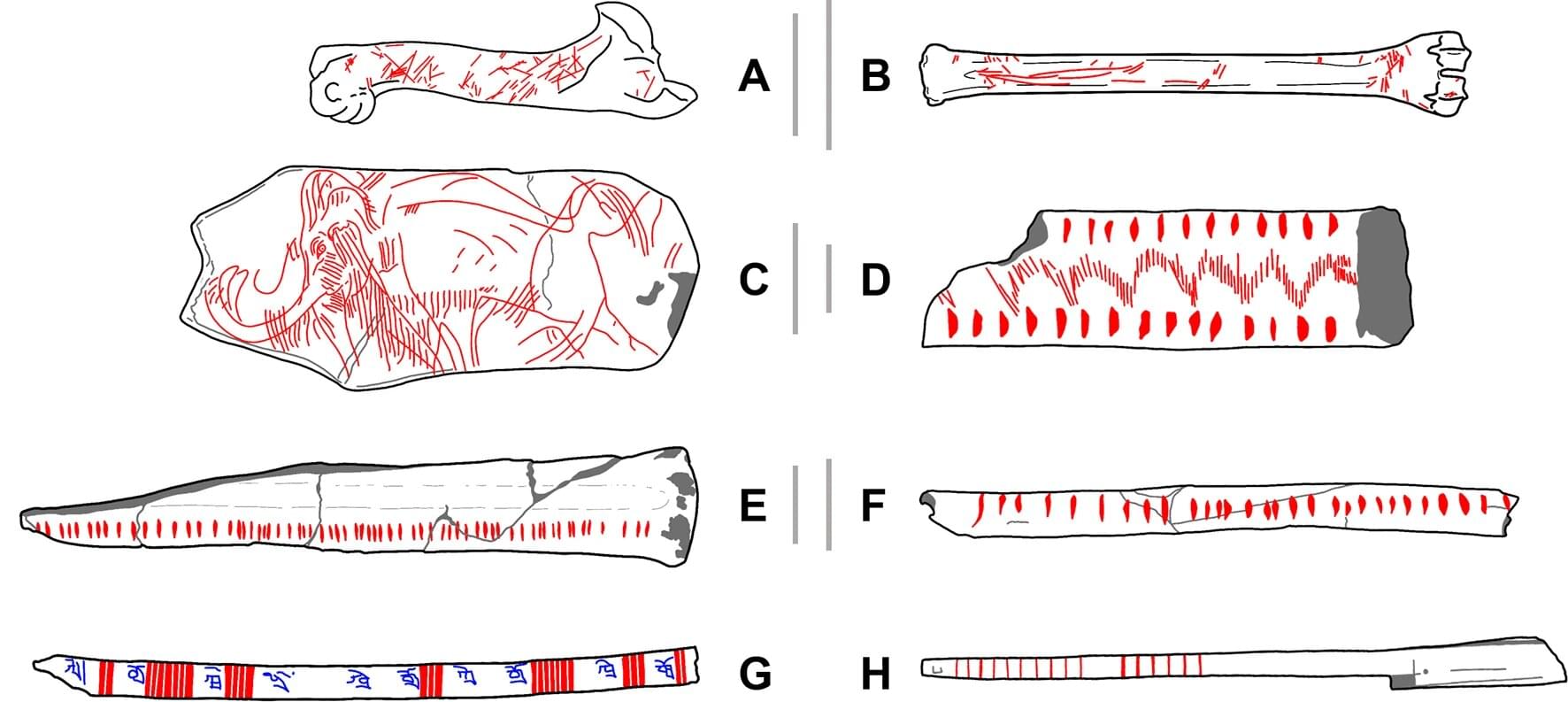
Université de Bordeaux-led research reports that spatial statistics can discriminate potential Paleolithic Artificial Memory Systems from butchery and art, aligning prehistoric marked objects with memory devices in Africa and Europe.
Humans are highly symbolic creatures, uniquely combining symbolic reference, complex language, physical representations, active intentional teaching, and large-scale cultural learning.
Artificial Memory Systems (AMS) encompass devices that record, store, transmit, and retrieve coded information beyond the brain, via external representations. AMS can be anything from the notches on a gunslinger’s pistol, tracking past success, to the symbols on and data encoded within the Voyager spacecraft’s golden record, detailing a snapshot of Earthling knowledge and culture.

Males born in summer months reported higher depression symptom scores than males born during other seasons, according to a study from Kwantlen Polytechnic University. Anxiety symptoms showed no association with season of birth for either sex.
Anxiety and depression remain among the most common mental disorders worldwide, with both conditions contributing to long-term disability, physical comorbidities, and substantial economic losses. A range of factors shape mental health across the lifespan, including housing, income, education, and age. Research into early-life exposures remains limited, particularly exposures shaped by environmental seasonality.
During gestation, exposure to temperature shifts, maternal diet, seasonal infections, and variation in daylight may influence neurodevelopment. Birth season has previously been associated with risk for psychiatric conditions including schizophrenia, bipolar disorder, and schizoaffective disorder. Studies examining birth season and depression have produced mixed results, often without stratifying by sex.
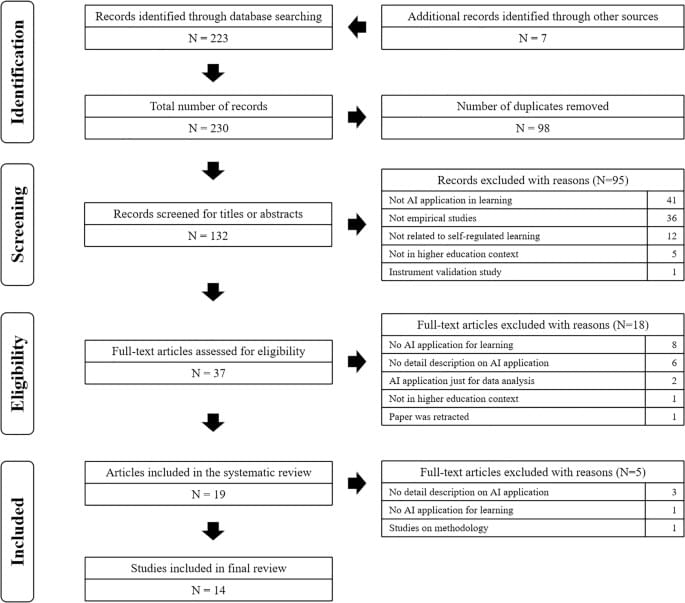
npj Science of Learning — A qualitative systematic review on AI empowered self-regulated learning (SRL) in higher education. Aiming to synthesize empirical studies, we employed a qualitative approach to scrutinize AI’s role in supporting SRL processes. Through a meticulous selection process adhering to PRISMA guidelines, we identified 14 distinct studies that leveraged AI applications, including chatbots, adaptive feedback systems, serious games, and e-textbooks, to support student autonomy. Our findings reveal a nuanced landscape where AI demonstrates potential in facilitating SRL’s forethought, performance, and reflection phases, yet also highlights whether the agency is human-centered or AI-centered leading to variations in the SRL model. This review underscores the imperative for balanced AI integration, ensuring technological advantages are harnessed without undermining student self-efficacy. The implications suggest a future where AI is a thoughtfully woven thread in the SRL fabric of higher education, calling for further research to optimize this synergy.

The hunt for potentially habitable rocky planets in our galaxy has been the holy grail of exoplanet studies for decades. While the discovery of more than 5,900 exoplanets in more than 4,400 planetary systems has been a remarkable achievement, only a small fraction (217) have been confirmed as terrestrial—aka rocky or “Earth-like.” Furthermore, obtaining accurate information on a rocky exoplanet’s atmosphere is very difficult, since potentially habitable rocky planets are much smaller and tend to orbit closer to their stars.
Thanks to next-generation instruments like the James Webb Space Telescope (JWST), exoplanet studies are transitioning from discovery to characterization. However, no atmospheres have been clearly identified around rocky planets yet, and the atmospheric data Webb has collected so far is subject to some uncertainty.
A summary of Webb’s findings was featured in a recent study by researchers from the Max Planck Institute for Astronomy (MPIA) and the Johns Hopkins University Applied Physics Laboratory (JHUAPL). Based on their summary, they recommend a “five-scale height challenge” to assist astronomers in atmospheric characterization.
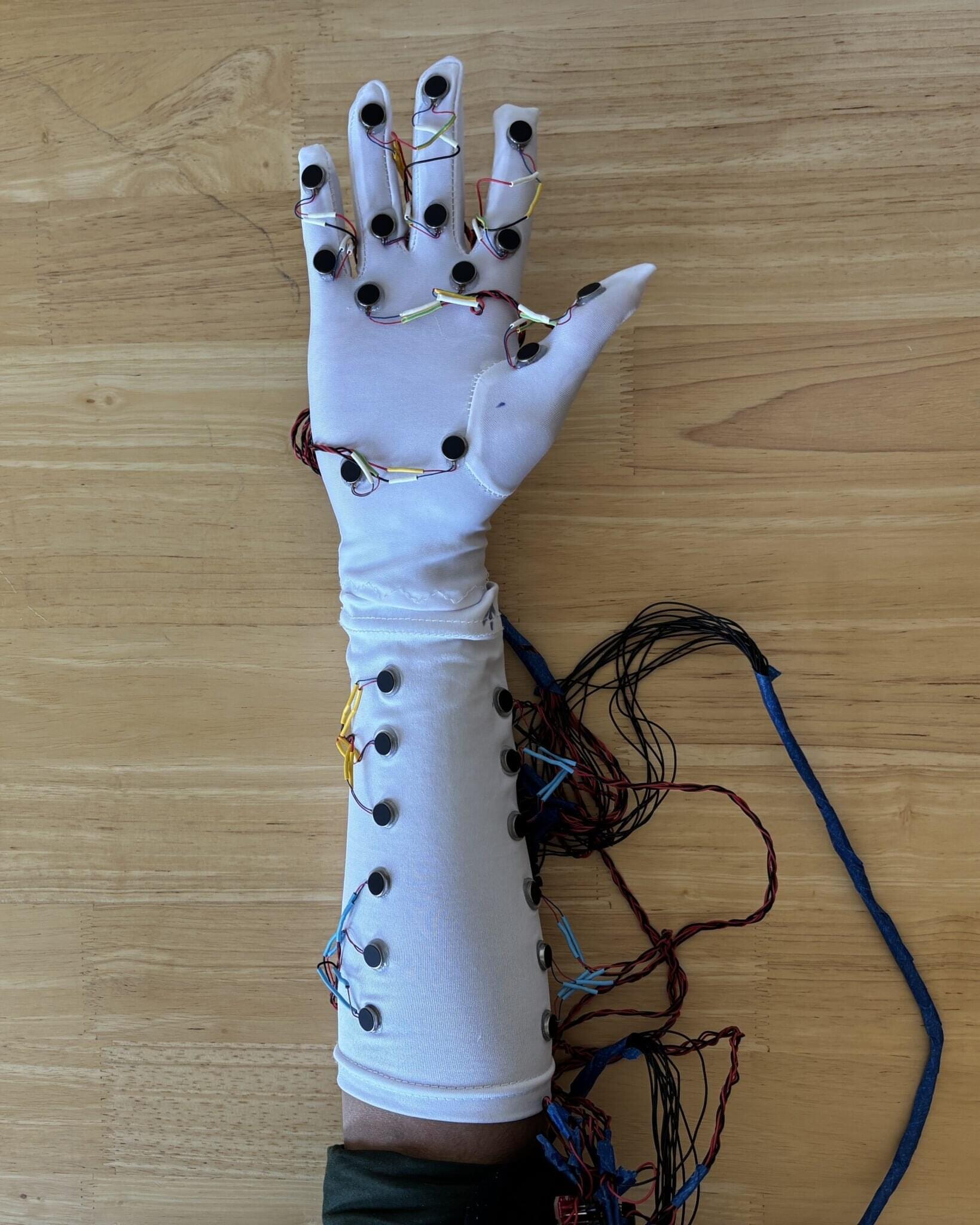
USC scientists have developed a wearable system that enables more natural and emotionally engaging interactions in shared digital spaces, opening new possibilities for remote work, education, health care and beyond.
Touch plays a vital role in how humans communicate and bond. From infancy through adulthood, physical contact helps foster emotional bonds, build trust and regulate stress. Yet in today’s increasingly digital world, where screens mediate many of our relationships, it is often missing.
To bridge the gap, researchers at the USC Viterbi School of Engineering have developed a wearable haptic system that lets users exchange physical gestures in virtual reality and feel them in real time, even when they’re miles apart. Their paper is published on the arXiv preprint server.
This is a sci-fi documentary looking at the future of genetic engineering and how it applies to space exploration, astronauts, terraforming planets and even Earth.
What is DNA, and how can it be engineered. What is CRISPR, and the future technology used in genetic engineering and biotechnology.
Personal inspiration in creating this video came from: Jurassic Park (the book), and The Expanse TV show (the protomolecule).
Other topics in the video include: how genetic engineering can change food allergies, cryosleep astronauts using hibernation biology borrowed from bears, squirrels and hedgehogs, engineering plants for terraforming other planets, and entries from The Encyclopedia of the Future.
PATREON
The third volume of ‘The Encyclopedia of the Future’ is now available on my Patreon.
Visit my Patreon here: https://www.patreon.com/venturecity.
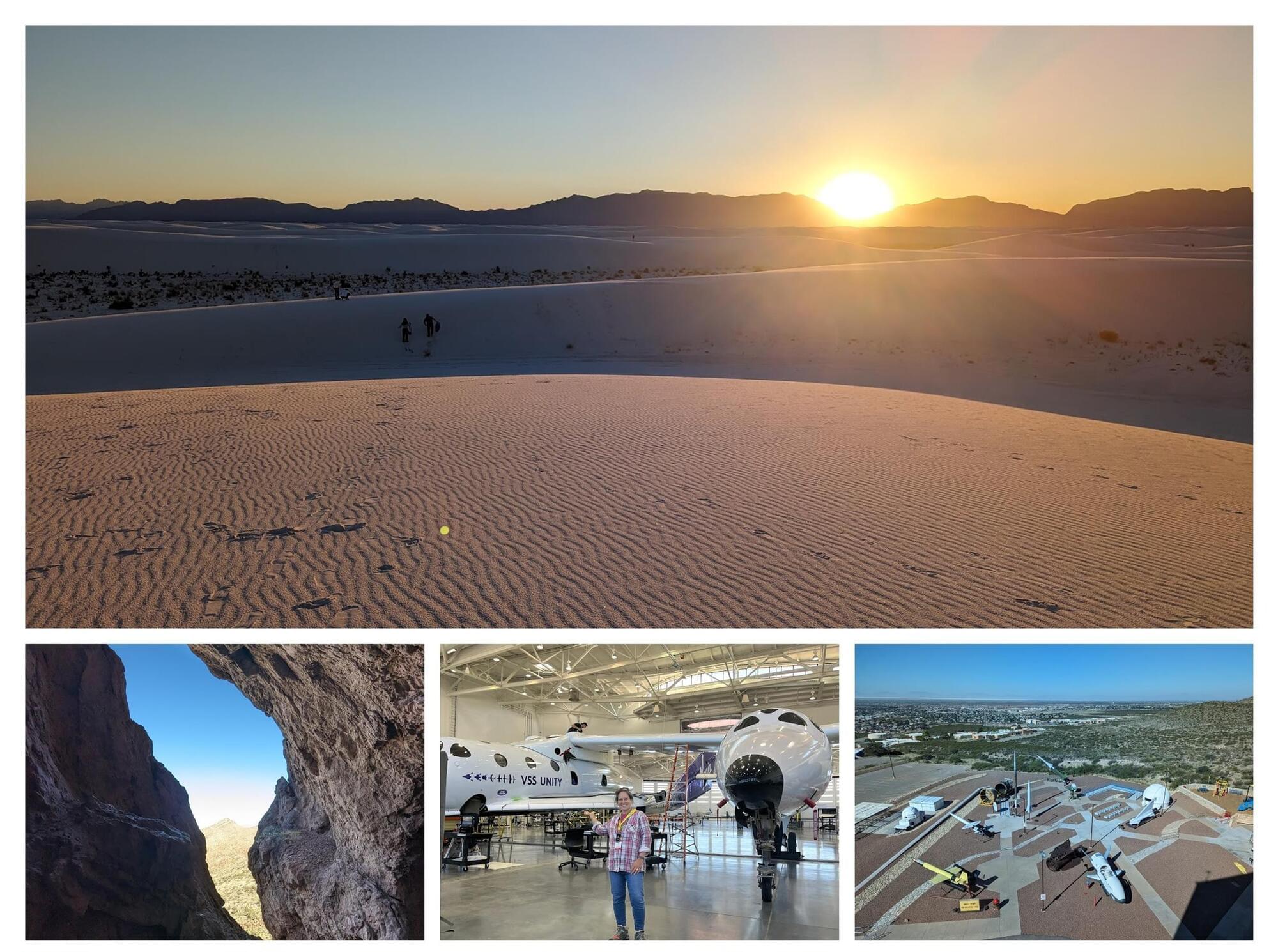
This FREE features Inspiration4 astronaut Chris Sembroski and educator Erin Duncan-Sembroski, along with your hosts, planetary scientist Dr. Kirby Runyon and space educator Dr. Mark Wagner. The high-energy one-hour session is focused on providing an overview of the three-day Earth and Space Experience coming up on November 7–9, 2025. Register now to learn about the geology at specific locations in Southern New Mexico, and how these sites are analogs for the Moon, Mars, and elsewhere in the solar system. Time is also allocated for a Q&A opportunity with all four speakers… come ready with questions! Participation in this also includes access to free space education resources that you can take back to share with your students or others in your community.
Note: This is appropriate for educators, industry professionals, and space enthusiasts from all walks of life. Space education is for everyone!
Chris “Hanks” Sembroski is a commercial astronaut, U.S. Air Force veteran, and passionate advocate for space exploration and STEM education. Best known for his role as Mission Specialist on the historic Inspiration4 mission in 2021, Sembroski spent three days in space, completing 47 orbits as part of the first all-civilian crew. With degrees in aeronautics and a career dedicated to advancing aerospace innovation, he has contributed to groundbreaking projects like Blue Origin’s New Glenn program and teaches as an adjunct faculty member at Embry-Riddle Aeronautical University. Chris’s journey reflects a lifelong passion for human spaceflight, from launching model rockets in college, leading teams through simulated missions at U.S. Space Camp, to advocating for space policy in Washington, D.C. He continues to inspire the next generation through his work as a speaker, educator, and industry leader, embodying the spirit of generosity and exploration.
